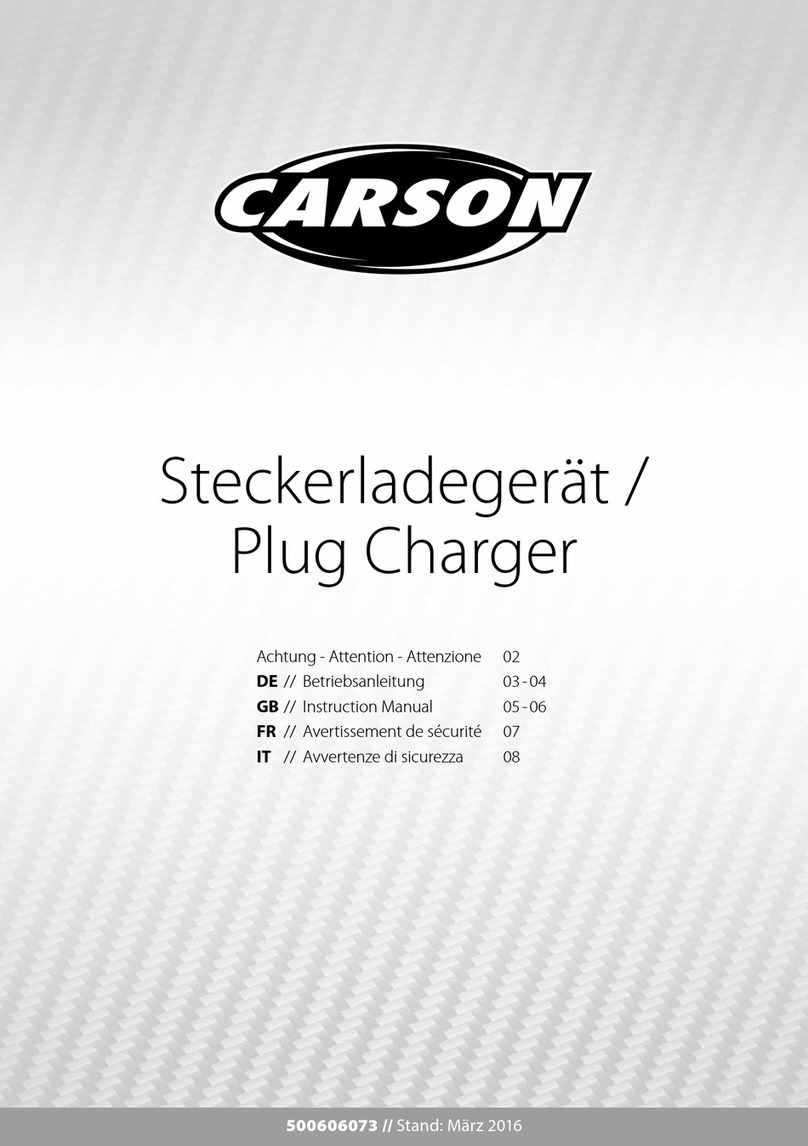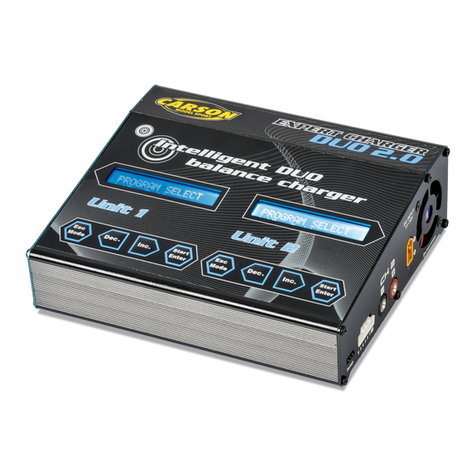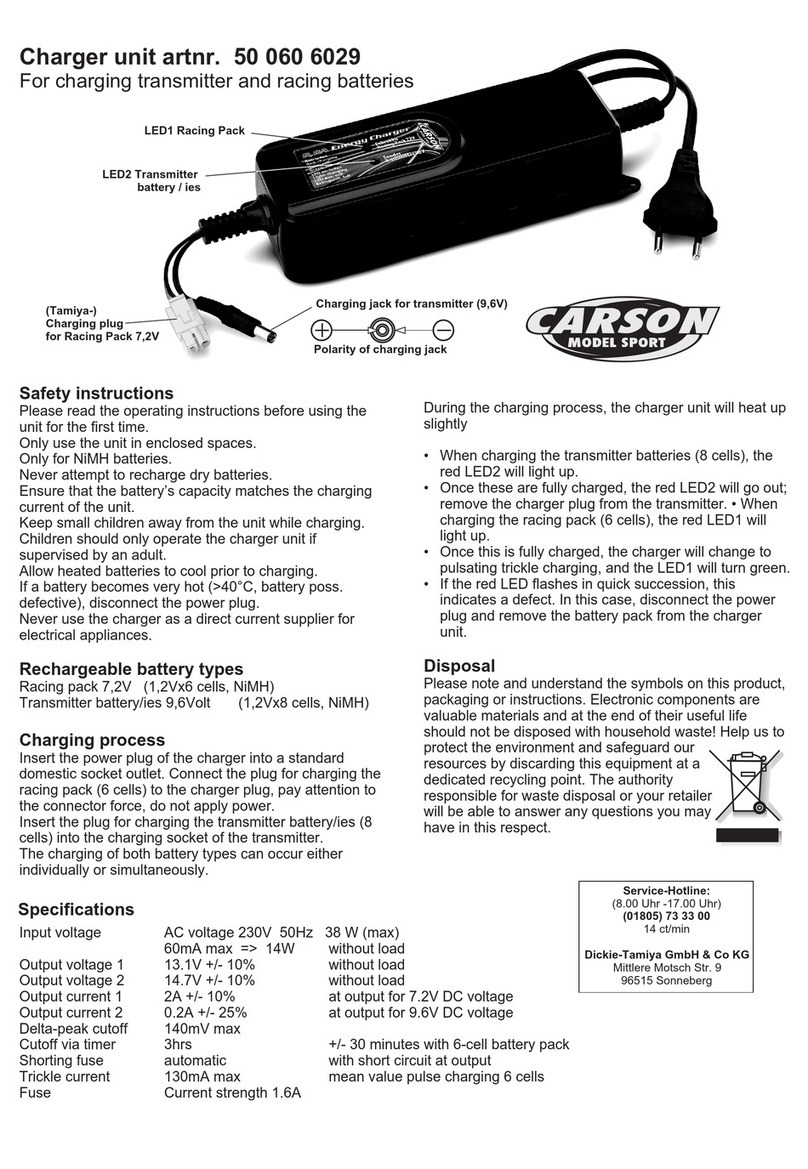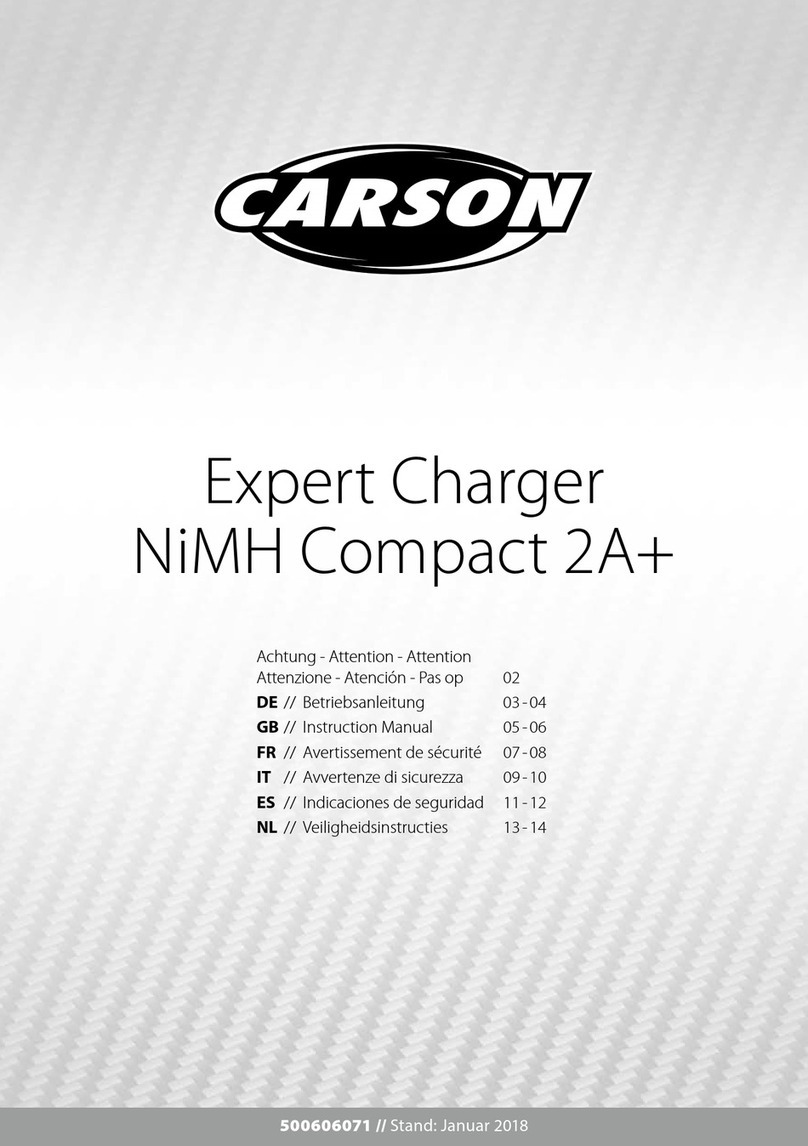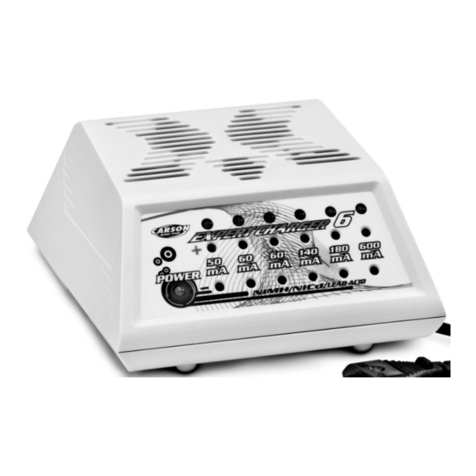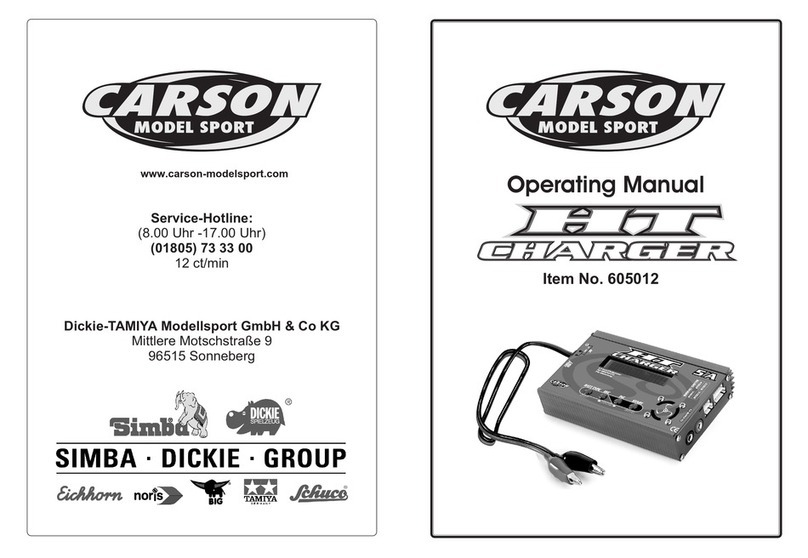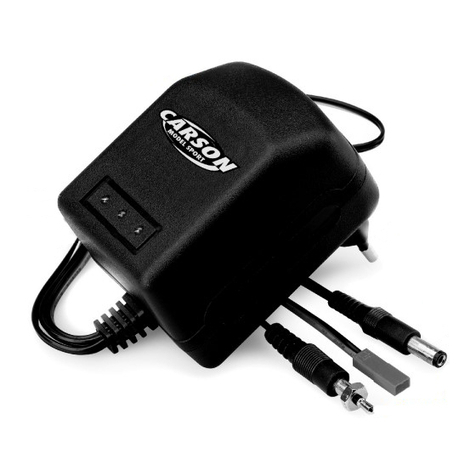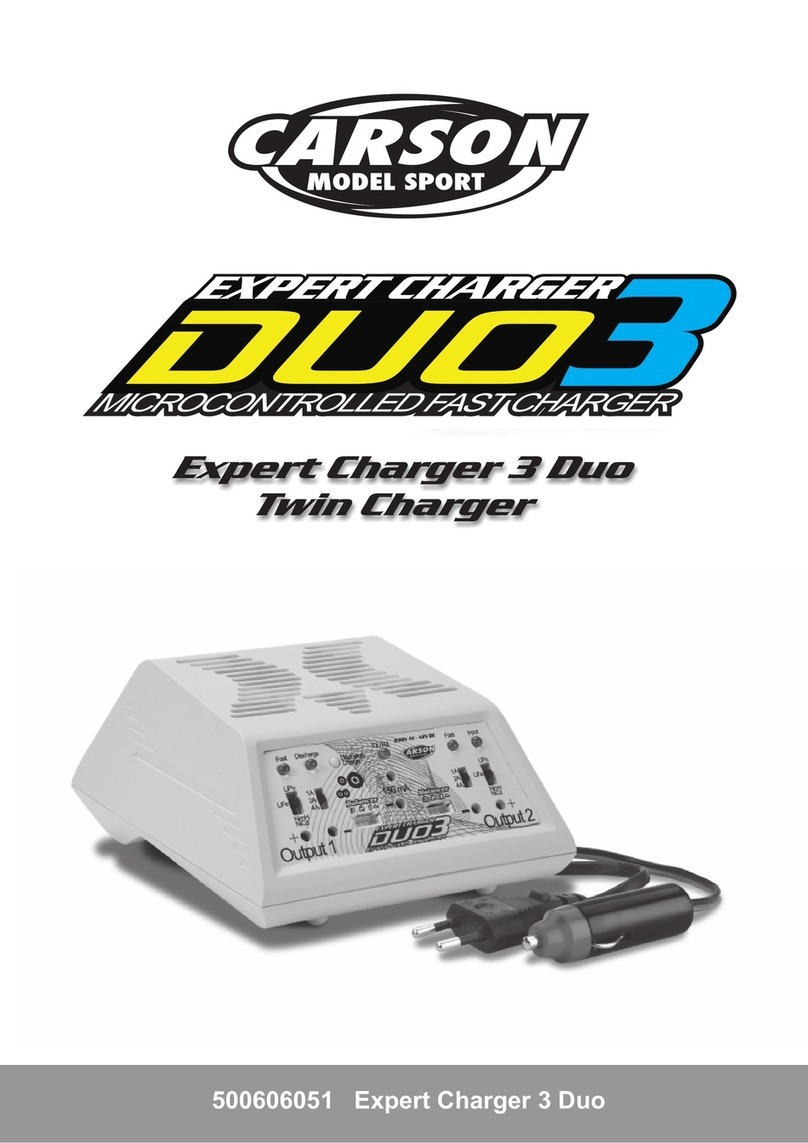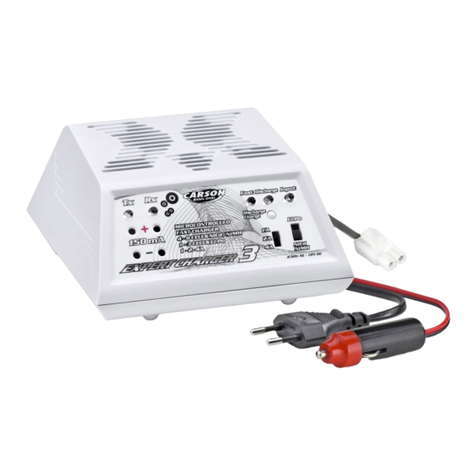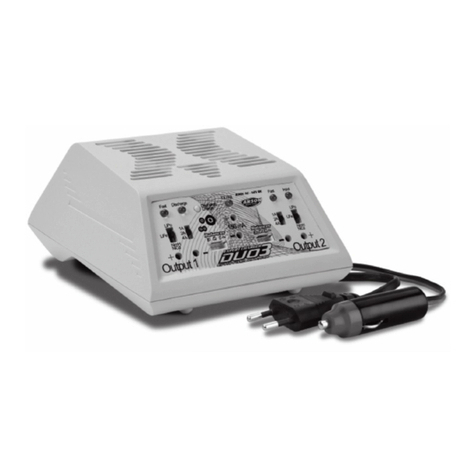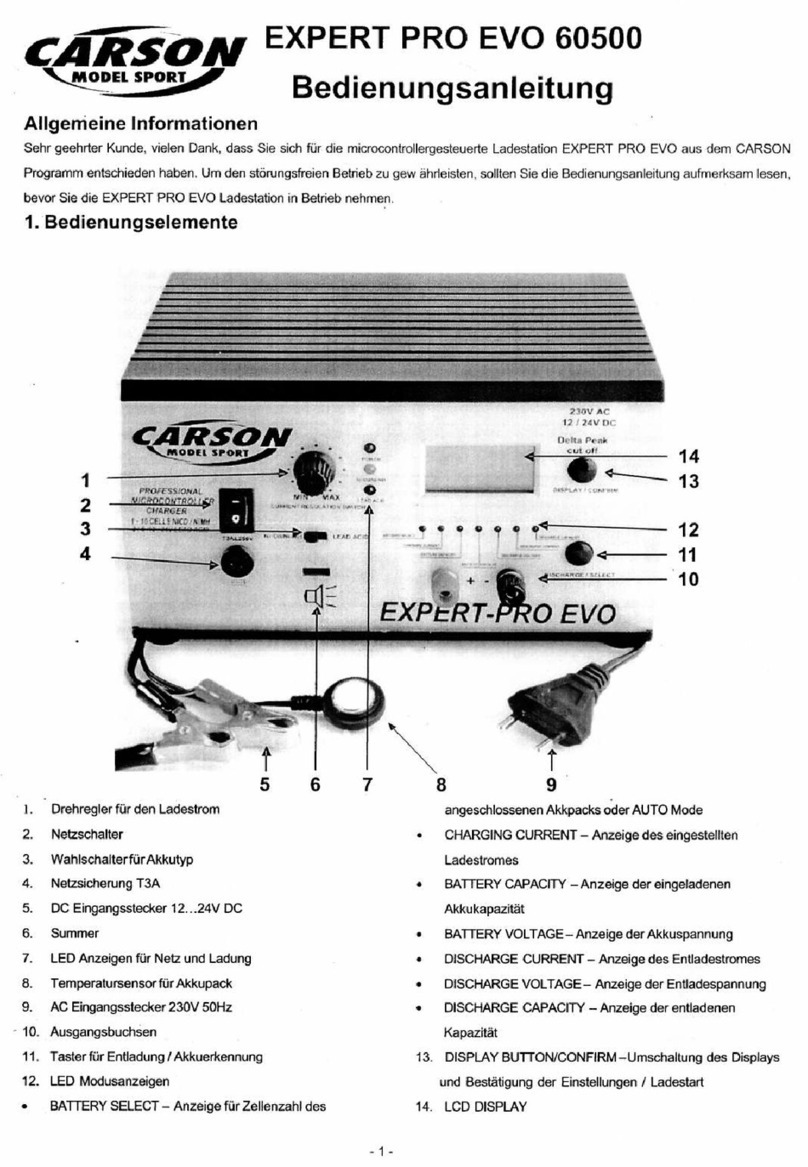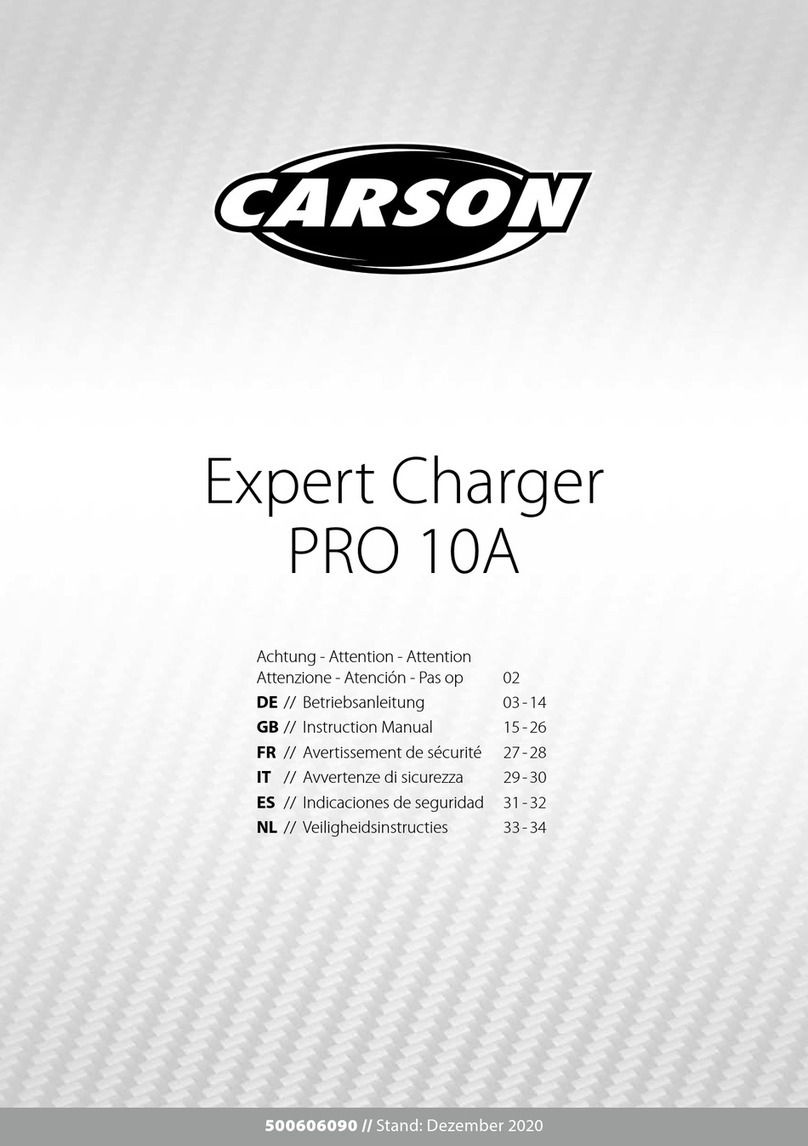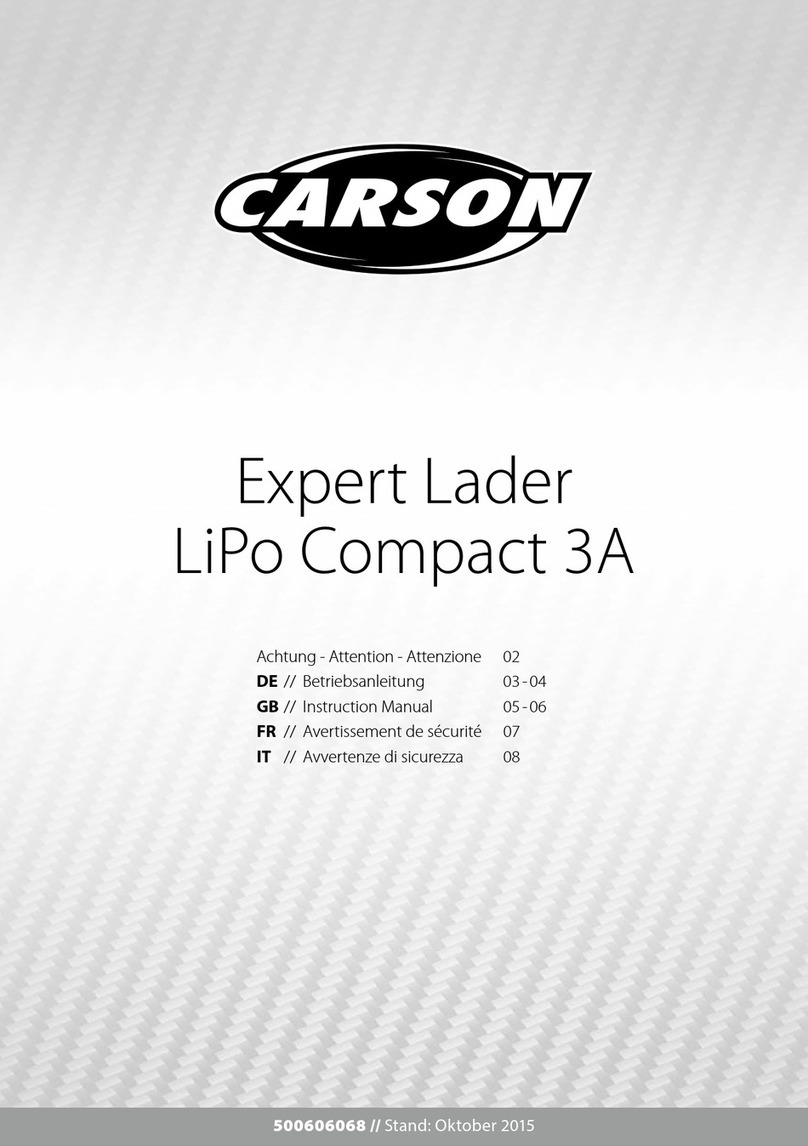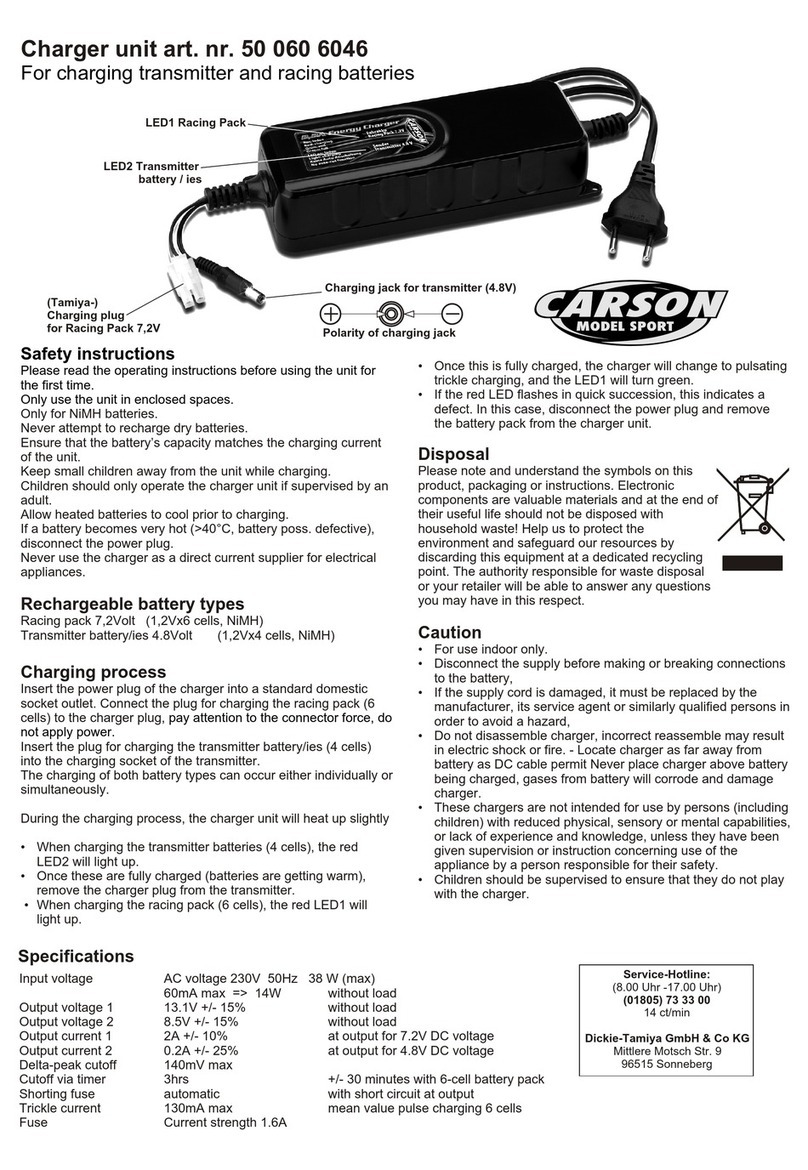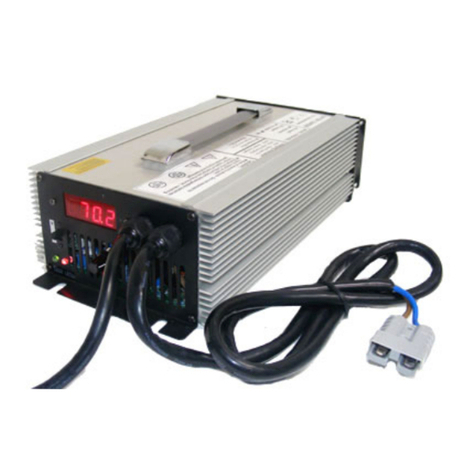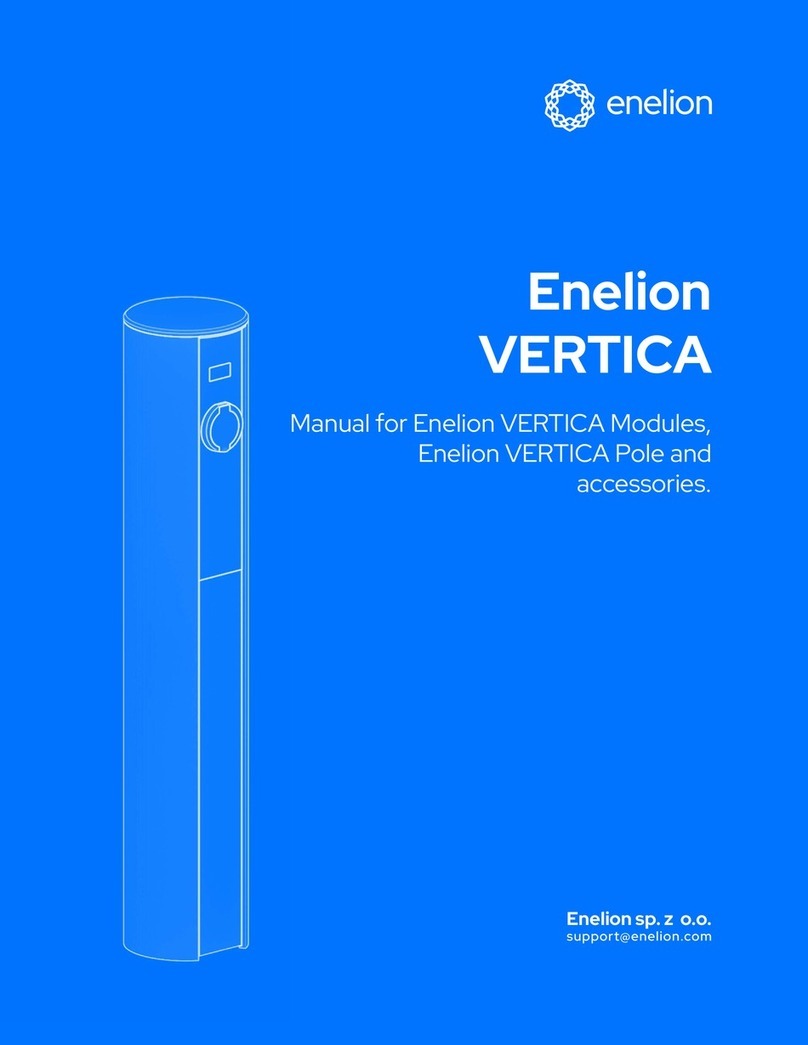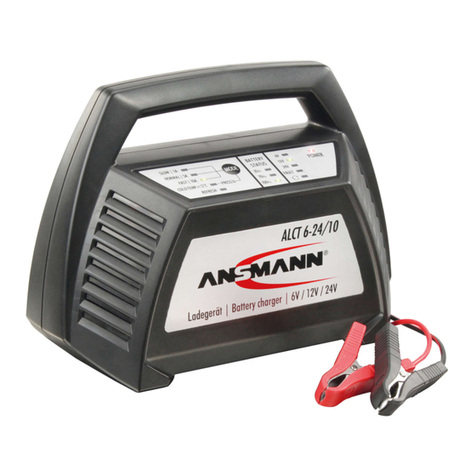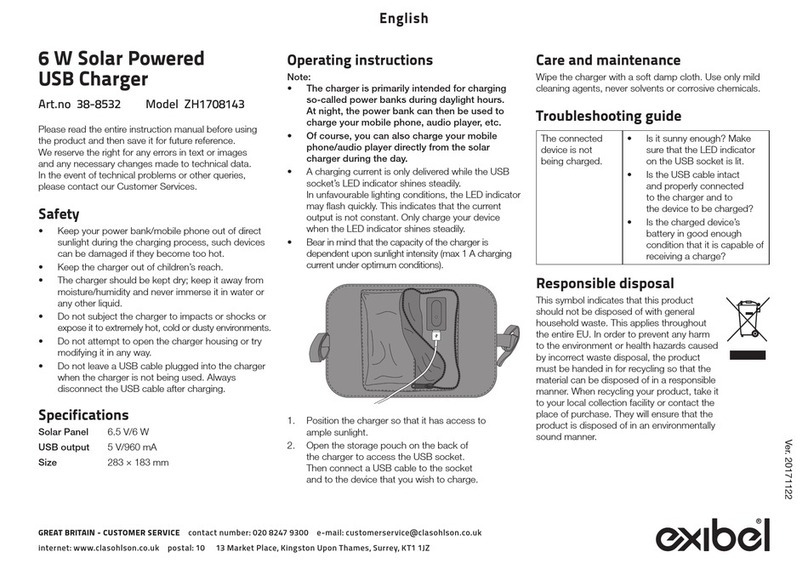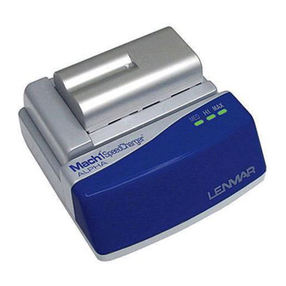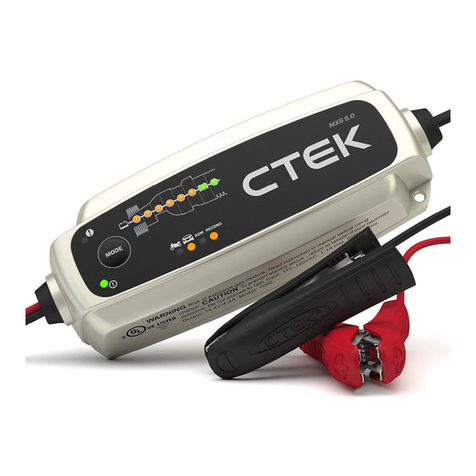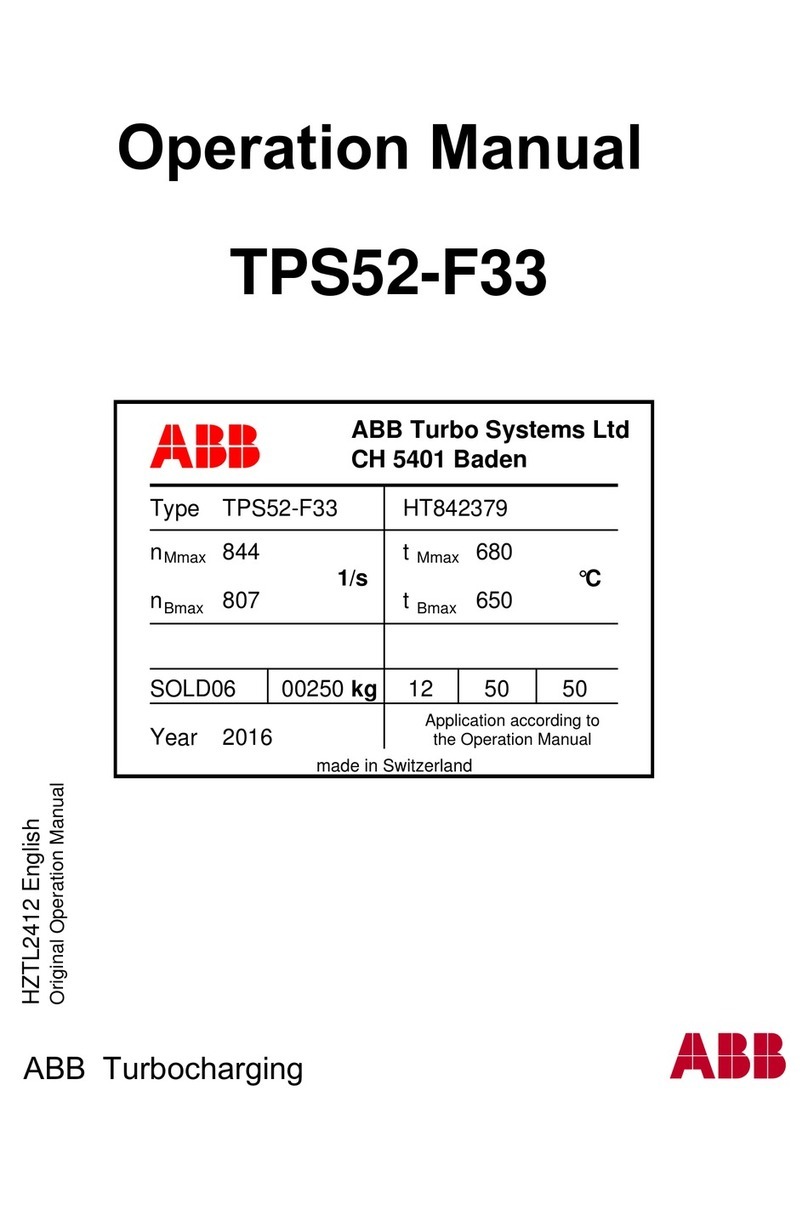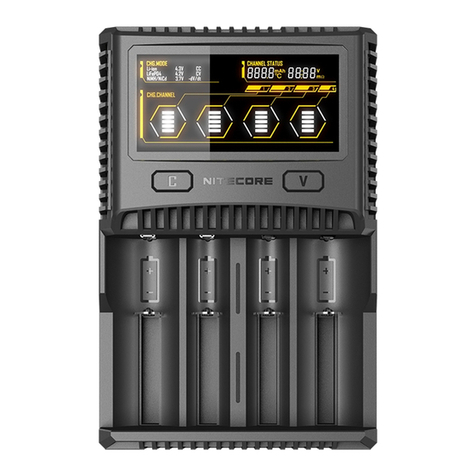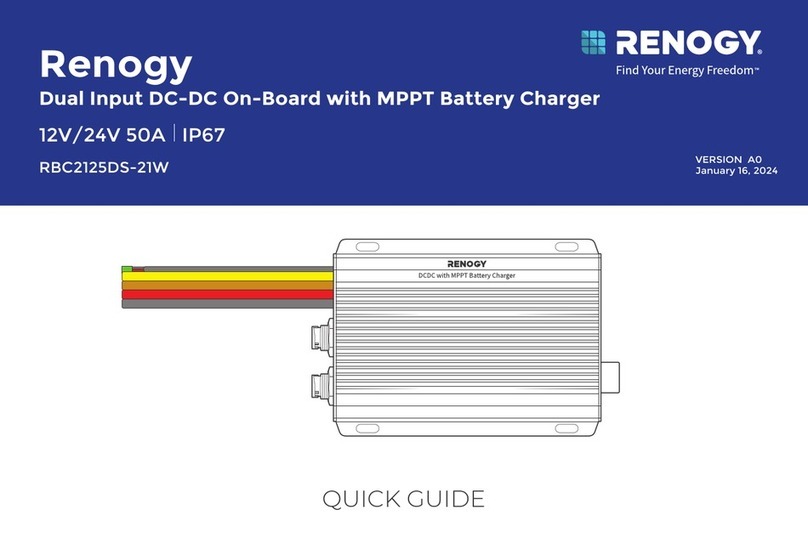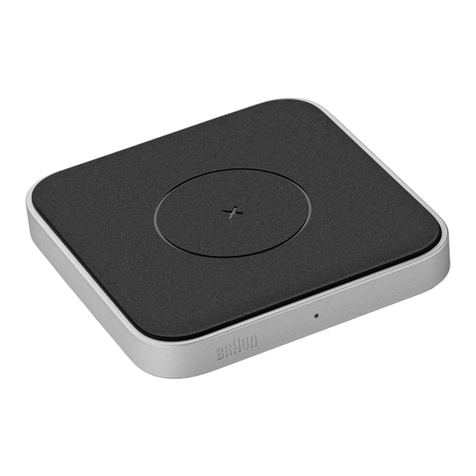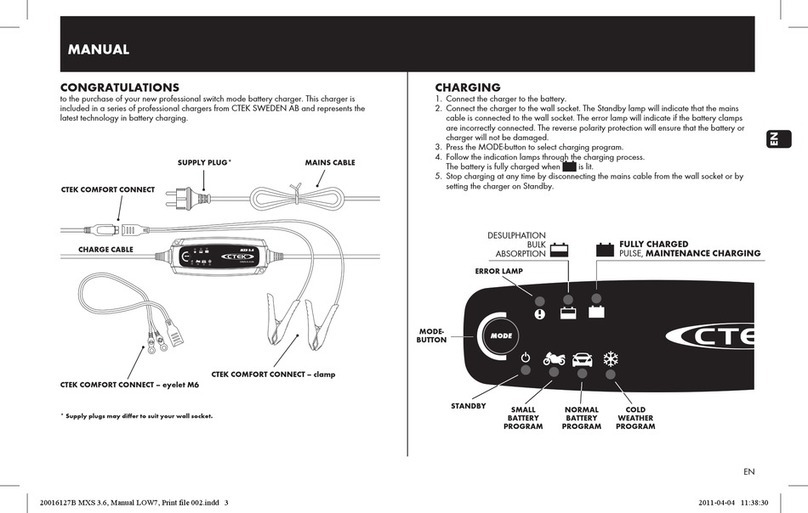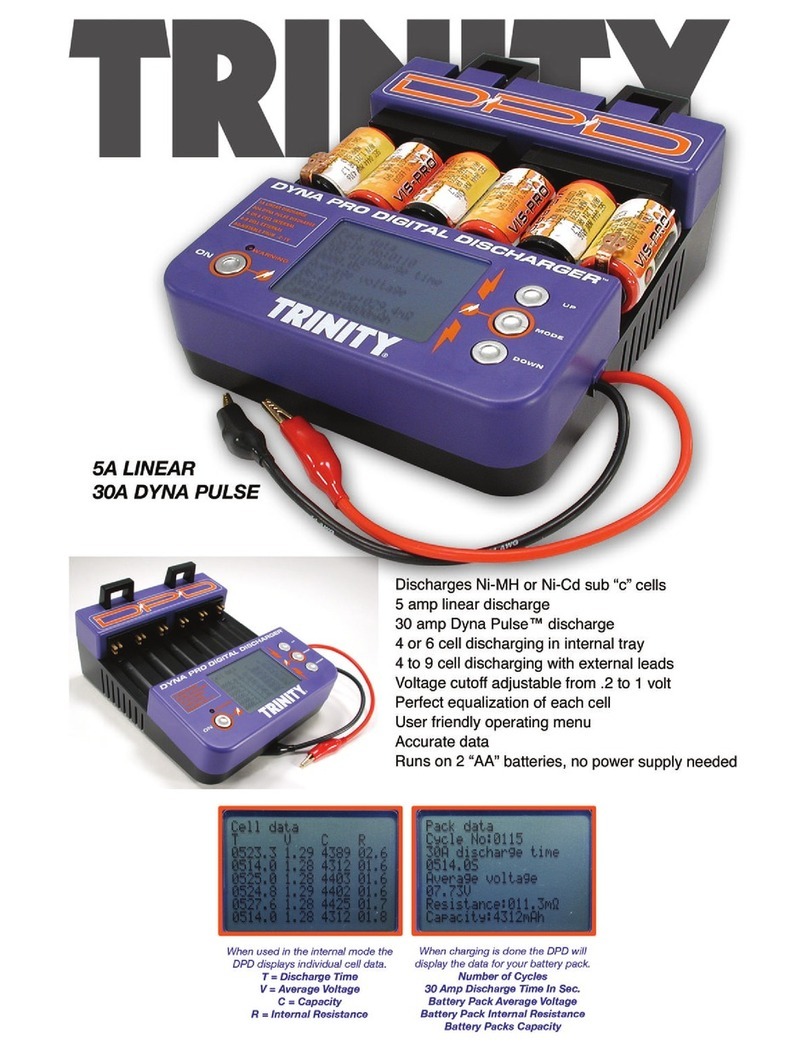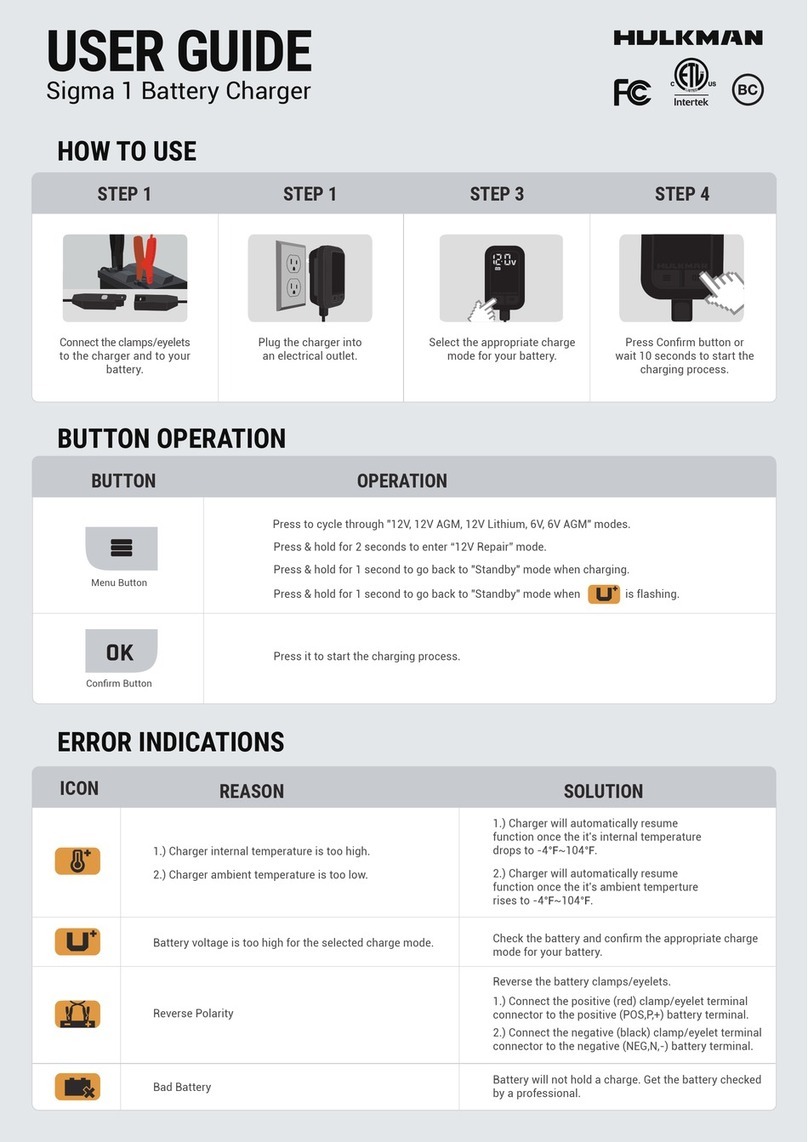* Never attempt to charge or discharge the following kinds of batteries:
- A battery pack that has been pieced together from various kinds of cells (including
different manufacturers)
- Non-rechargeable (dry) batteries because of the risk of explosion
- Batteries that require a different charging process from NiCd, NiMH, LiIo, LiPo, LiFe or Pb.
-Defective or damaged batteries
- Batteries that have an integral charging circuit or protective circuit -Batteries inside a piece
of equipment that are linked electrically to other components. -Batteries that are not
specifically specified by the manufacturer as being suitable for the current delivered by the
charger.
* Do not try to continue charging a fully charged NiCd or NiMH battery or one which has
been slightly discharged.
* Please ensure that you always check the following before starting to charge a battery:
- Have you selected the appropriate charging programme for the type of battery?- Have you
set the correct strength of current for charging or discharging?
- Lithium battery packs may have a mixed parallel and series connecting arrangement.
Before charging, check the battery pack construction carefully.
- Are all the connections secure; are there any loose connections?
* The charging cable or connection should have an appropriate wire size. You should also
check that quality plugs are used at both ends.
- Note the information supplied by the battery manufacturer as regards the charging
operation, and adhere to the charge current and time. In the case of lithium batteries, it is
particularly important that the manufacturer’s charging instructions are followed very
closely.
- Do not try to dismantle a battery pack yourself.
- Particular attention should be paid to the charge capacity and current of lithium battery
packs. They may have a mixed parallel and series connecting arrangement. In the case of
parallel connections, the capacity is multiplied by the number of cells, however the current
remains the same. This type of construction without voltage equalisation can cause a fire
or an explosion during charging. We therefore recommend that you only use lithium
battery packs with series connections.
* Never discharge to below the minimum voltage as this causes the battery capacity to drop
off quickly or fail completely. As a general rule, lithium batteries do not need to be
deliberately discharged.
- Some batteries are said to possess what is known as the “memory effect”. If they are only
partially discharged during use and are recharged before they are completely discharged,
they “remember” this to a certain extent, and only this part of the charge can then be used.
This is called the “memory effect” and is a characteristic of NiCd and NiMH batteries. They
prefer a complete cycle whereby they are fully charged and then used until completely
empty. Do not charge these batteries before storing – if they are to be stored for a long
time, allow them to discharge by themselves. NiMH batteries have a lower memory effect
than NiCd batteries.
* This warning and safety information is important. To ensure the greatest possible safety,
please observe these instructions carefully, as failure to do so may cause the charger and
battery pack to be seriously damaged. Failure to follow these instructions may also cause
a fire, resulting in injury and damage to property.
GBGB
CARSON EXPERT DUO Battery Charger 50 060 6035
